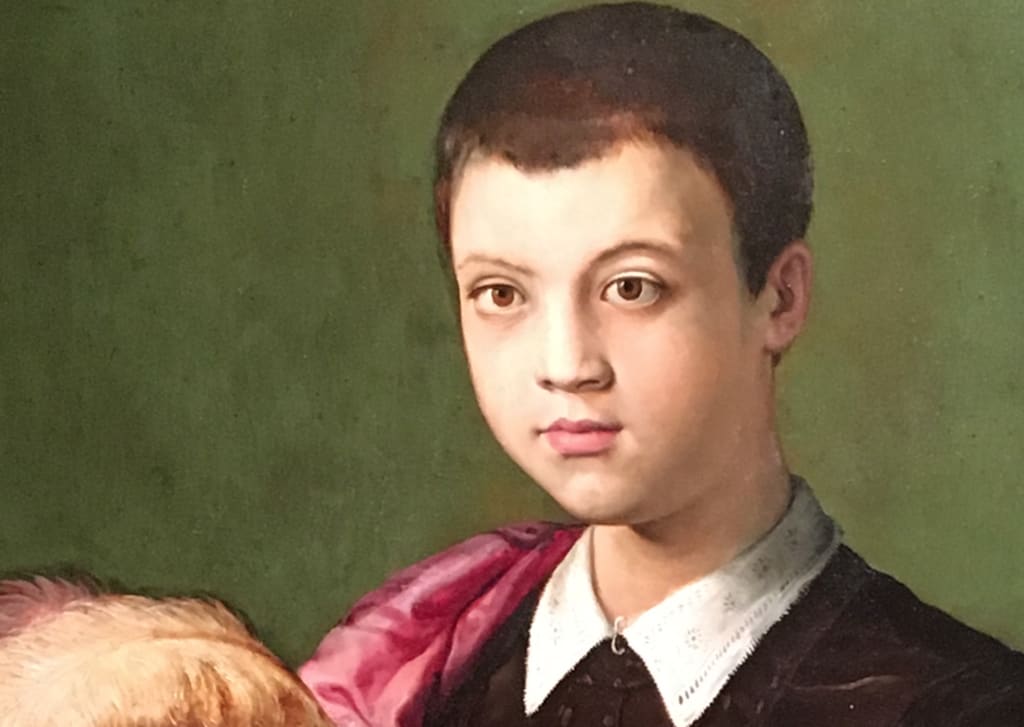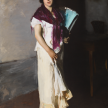The Last Divination
An Ornithologist Saved My Grandfather

I.
My grandfather, before he was hit by a truck, used to tell me stories about our ancestors in the mountains. For millennia, he claimed, they raised sheep in the same valleys, drank water from the same wells, and practiced the same traditions. It was, according to him, an unforgiving life: sometimes it rained until their huts were swept away, or their sheep were devoured by wolves. But as there was hardly anything to take from these poor shepherds and farmers—and because the mountains were considered to be impassable—they were rarely visited by armies.
Among the shadowy valleys and jagged peaks of the mountains, our ancestors became distinctly prideful. And in sympathy with the land, my grandfather would claim, some of these poor shepherds learned the province of divination.
The practice of these mystics, mostly women, is today called ornithology, but for them it was a deeply spiritual and vital study: by recording the migrations of birds and their coincidence with seasonal phenomena, they became, in effect, stewards of the calendar and chroniclers of the past.
Yet although they knew the past and could predict the future by the movement of cranes, storks, and songbirds, there were many things they could not prevent. Far to the north and south, kingdoms competed for influence, and my ancestors’ mountains lay between them.
When the nearest kingdom invaded, the roads of the quiet hamlets were assigned numbers and the yield of the land was precisely calculated; then the crops and livestock were exported to distant provinces according to an order wholly unfamiliar to the mystics. This new order was said to be a prosperous and important one, because it united Christians across the world, but my grandfather would not admit they were Christian at all. Likewise, the order of the mystics — long associated with pagans and dervishes — was not accepted by them; its harmless aspects were appropriated, and what remained was called heresy.
II.
The diviners’ practice was continued by a few mystics. It was even publicly celebrated, but only insofar as it represented the people’s nostalgia and pride in their past. Thus, the woman who inherited the tradition lived respectably in the village square, along with her apprentice, an orphan girl. She was even permitted to maintain her exalted role in the village judiciary, which gave her the power to confer innocence on a condemned criminal.
One day in winter, a strange sight was beheld by the villagers. On the face of the mountain looming over the town, a wolf was seen creeping along a precipitous ledge toward the nest of a golden eagle. Then, in a daring swoop, the wolf made off with a fledgling before it could drop from its nest and drift to safety.
It was a winter filled with hardship for the people of the mountains. Many came to the village in search of food, as the terraced farms produced no crops that year, and the reserves on which they normally depended had long ago been shipped to the kingdom’s capital. There was no small measure of unrest, either; stories abounded of peasants hoarding grain, only to be found out and brutally punished.
On the evening of the wolf sighting, during a snowstorm, a boy appeared at the mystic’s door. He was a shepherd that had come to the village the previous year to sell his wool. This time, he came with nothing. He was sheltered by the mystic, and shared in the tasks of her apprentice until one day in late February, on the brink of starvation, he was found to have stolen provisions from the officials’ storeroom. The boy pulled a pistol on the official who had cornered him, but his powder was wet and he was thrown into jail.
III.
The boy was the first to have attempted such a theft in the village. When he stood trial, the villagers were required to bear witness. In the center of the village square a scaffold was erected. The boy’s execution was a foregone conclusion, and the officer at whom he leveled his pistol was in charge of pronouncing his sentence.
The people of the town stood quietly by, and the mystic watched from across the square. Finally the boy was brought out, bruised and bleeding. The priest gave his benediction: in the name of the savior, the boy was to be hanged.
The mystic stepped forward.
It was well remembered by the villagers that she alone could save the boy; however, it would come at great personal cost. The new officials stipulated that, if she were to exercise her traditional powers, she would have to offer herself as a sacrifice in the criminal’s place. It was considered unthinkable, as her death meant the end of the order itself, yet she stepped forward.
As a further condition, the boy was to witness the hanging of the old woman. Then, along with the mystic’s apprentice, he was exiled.
Every year, my grandfather dedicated a day of remembrance to the mystic. Without her remarkable sacrifice, neither my grandfather nor his descendants would be alive today.
About the Creator
Willa Chernov
Willa Chernov is a writer and translator living in New York.






Comments
There are no comments for this story
Be the first to respond and start the conversation.